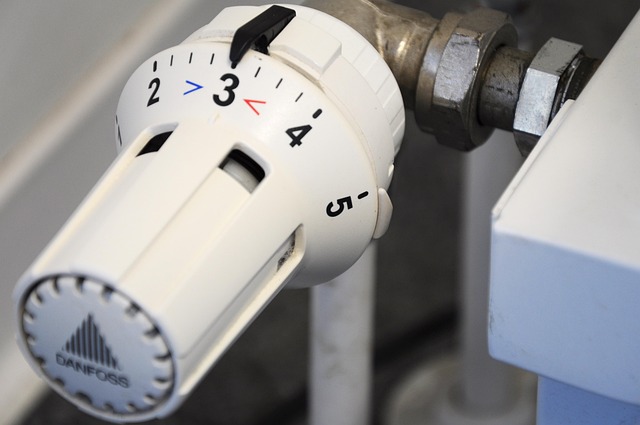Simple Ways That Can Stop an Atrial Fibrillation Attack
Atrial fibrillation (AFib) is a common heart rhythm disorder that can be both frightening and uncomfortable. While medical intervention is crucial for managing AFib, there are several simple techniques that individuals can employ to potentially stop or alleviate an AFib attack. This article explores practical strategies to help manage AFib symptoms and provide relief during an episode.

What are the common symptoms of an AFib attack?
Recognizing the symptoms of an AFib attack is crucial for early intervention. Common signs include:
-
Rapid or irregular heartbeat
-
Heart palpitations or a fluttering sensation in the chest
-
Shortness of breath
-
Fatigue or weakness
-
Dizziness or lightheadedness
-
Chest discomfort or pain
-
Anxiety
It’s important to note that symptoms can vary from person to person, and some individuals may not experience noticeable symptoms at all. If you suspect you’re having an AFib episode, it’s essential to stay calm and consider trying some of the following techniques while also being prepared to seek medical attention if symptoms persist or worsen.
How can breathing exercises help during an AFib episode?
Controlled breathing exercises can be an effective tool in managing AFib episodes. These techniques work by stimulating the vagus nerve, which can help regulate heart rhythm. Here are two simple breathing exercises to try:
-
Deep Belly Breathing: Sit or lie down comfortably. Place one hand on your chest and the other on your belly. Inhale slowly through your nose, allowing your belly to rise while keeping your chest relatively still. Exhale slowly through pursed lips. Repeat for 5-10 minutes.
-
Box Breathing: Inhale for a count of four, hold your breath for four counts, exhale for four counts, and then hold your breath again for four counts before repeating the cycle. Continue this pattern for several minutes.
These exercises can help reduce stress and anxiety, which may contribute to AFib episodes. Regular practice of these techniques, even when not experiencing symptoms, can improve overall management of the condition.
What physical maneuvers can potentially stop an AFib attack?
Several physical maneuvers can stimulate the vagus nerve and potentially help terminate an AFib episode. These include:
-
Valsalva Maneuver: Take a deep breath and bear down as if you’re having a bowel movement. Hold this for about 10-15 seconds, then release.
-
Coughing: A forceful cough can sometimes help restore normal heart rhythm.
-
Cold Water Facial Splash: Splash cold water on your face or apply a cold, wet towel to your forehead and the back of your neck.
-
Carotid Sinus Massage: Gently massage the carotid artery on one side of your neck for a few seconds. (Note: This should only be done under medical supervision, as it can be risky for some individuals.)
It’s important to remember that while these techniques can be helpful, they are not substitutes for medical treatment. Always consult with your healthcare provider before attempting these maneuvers to ensure they are safe for your individual condition.
What are some unique AFib management tips for seniors?
Seniors with AFib may face additional challenges in managing their condition. Here are some tailored tips for older adults:
-
Medication Management: Use pill organizers or smartphone apps to keep track of medications and dosages. Consider enlisting the help of a family member or caregiver if needed.
-
Fall Prevention: AFib can increase the risk of dizziness and falls. Ensure living spaces are well-lit and free of tripping hazards.
-
Regular Exercise: Engage in low-impact activities like walking, swimming, or tai chi to maintain cardiovascular health. Always consult with a healthcare provider before starting a new exercise regimen.
-
Stay Hydrated: Dehydration can trigger AFib episodes. Keep a water bottle handy and set reminders to drink regularly throughout the day.
-
Stress Reduction: Practice relaxation techniques such as meditation or gentle yoga to manage stress, which can exacerbate AFib symptoms.
-
Social Support: Join support groups or connect with other seniors who have AFib to share experiences and coping strategies.
-
Regular Check-ups: Attend all scheduled medical appointments and keep a log of symptoms to discuss with healthcare providers.
By incorporating these strategies into their daily routines, seniors can take proactive steps in managing their AFib and maintaining a good quality of life.
While these simple techniques can be helpful in managing AFib episodes, it’s crucial to work closely with a healthcare team to develop a comprehensive treatment plan. This may include medications, lifestyle modifications, and in some cases, procedures such as cardioversion or ablation. Remember that AFib is a serious condition that requires ongoing medical supervision and care.
This article is for informational purposes only and should not be considered medical advice. Please consult a qualified healthcare professional for personalized guidance and treatment.




